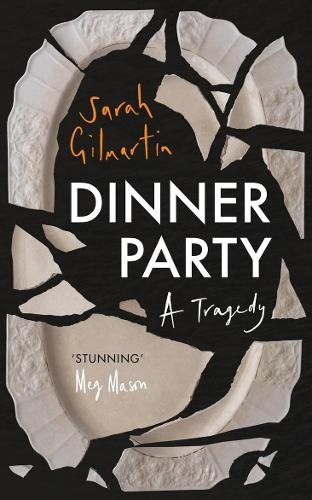How can writers capture the feeling and repercussions of the pandemic in their fiction? As early as May 2020 an anthology called “Tools for Extinction” came out which included work from writers around the world responding to the ongoing crisis and Ali Smith's “Summer” included the pandemic as part of its storyline. It's curious to see how such recent events are embedded in a past which is now being fictionalised – especially as there's the possibility we could return to a state of lockdown and quarantine at any time. Although we usually go through our lives with little sense that we're living through history most people understand that these extraordinary times have significantly and permanently altered the world. Having so many people isolated in their homes has led to enormous emotional, financial and physical consequences. It's often remarked that writers need a sufficient distance from events to fully encapsulate their larger meaning in literature, but that depends on the strategy the author takes.
In her new novel Sarah Moss' tactic is to embody the immediate thoughts and actions of four different characters in a village. “The Fell” is set in November 2020 during the second national lockdown in England when residents were ordered not to leave their homes. Kate is a single mother who recently lost her job at a cafe because of the pandemic and now worries about how she'll pay her bills. Although she knows she's breaking the rules, Kate leaves her adolescent son Matt at home to go for a solitary stroll across the countryside. She does this despite the threat of government fines and citizens being encouraged to inform upon any neighbours who break the rules. It says something about her state of mind and the pressure she's under that her feet seem to lead her outside and that she doesn't return even when it's getting dark and she knows the sensible thing would be to turn back. Though the risk is small, the stakes are high. And this is the dilemma we've all faced over the past two years when for many people it's more a question of personal responsibility than any outside pressure to follow the rules.
Things go badly wrong for Kate and it changes what's only been a theoretical crisis into a real crisis. The narrative revolves between the perspectives of Kate, Matt, their older neighbour Alice who is shielding at home and rescue worker Rob. It movingly follows the mental process many of us have gone through when confined at home with all the attendant fear, boredom, frustration and self-pity as well as feelings of guilt for reacting like this when we reason that there are other people who are suffering in more severe ways than we are. Moss captures the sense of stasis and how “A person can doubtless live like this indefinitely, the background murmur of dread only a little louder week by week, month by month”. Following these characters' mental states we get a sense of the building crisis as what was formerly abnormal becomes normalised. As they experience an extremely difficult predicament they are forced to consider their own resiliency and ability to cope under these circumstances. In particular, I was entranced by the way Kate is driven to a state of such crisis that she experiences a semi-hallucinatory encounter with a raven that's like a spectre from a Shakespearean tragedy.
There is so much in this novel which feels relatable and there's a solace in reading about characters who have felt many of the same emotions I have during this time. Alice feels inspired to bake batches of cookies, but since she lives alone the dilemma is there is nothing to do with all these cookies but eat them all herself. She also takes a strange comfort in watching rollerskating tutorials from California on her computer. However, Matt reaches a point where he feels like he's seen everything he's interested in online and nothing is being updated anymore. It becomes even more evident that the internet is a receptacle through which people voyeuristically experience the world and it becomes many people's only touchstone to the outside – including awkward video call chats with family members while eating a meal. Everything becomes glazed with a sense of the unreal: “because your mind and memory can't get much purchase on pixels on a screen, because nothing feels real any more.” Moss encapsulates the texture of recent times in this novel while also contemplating the way we handle facing our own mortality and negotiate the risks that we feel are worth taking in life. It's an innovative and effective approach to representing what we've all just lived through.













